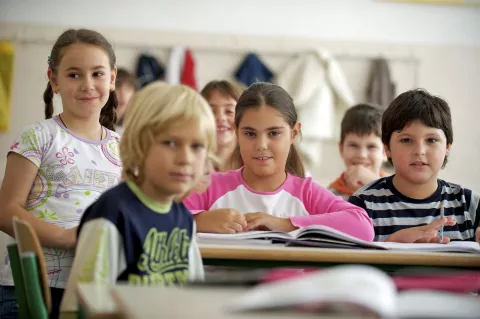Protecting Montenegrin Children from Poverty during and after the Pandemic
A Call for a Multisector Approach

- Available in:
- Crnogorski
- English
Highlights
As countries across the globe struggle to contain the spread of the COVID-19 pandemic, its adverse socio-economic effects are becoming more and more visible, threatening to stall, and in many instances reverse, the progress made in achieving the Sustainable Development Goals (Gates Foundation, 2020). Recognizing the urgent need to protect the most vulnerable groups, especially children, during this unprecedented economic downturn, practically all countries in the world have implemented new social protection measures. According to the World Bank, by the beginning
of July 2020, 200 countries and territories had put in place 1,055 emergency social protection programmes (Gentilini et al., 2020). As the pandemic is being curbed and as economic forecasts start to improve, social spending nevertheless remains at risk of being rolled back or even reduced compared to pre-crisis levels, especially in less affluent countries. This poses extra risks to child wellbeing. Experience from previous crises shows that public spending cuts often cause irreversible damage to children’s development, far outweighing the short-term fiscal savings. As part of its systematic advocacy and support to end child poverty, UNICEF Montenegro commissioned this
discussion paper to analyse the new risks to children’s welfare posed by the pandemic and propose measures for mitigating them. The paper draws on existing evidence generated by major international development organizations and the national statistics office (MONSTAT) to demonstrate that: (i) child poverty was already unacceptably high in Montenegro even before the crisis and, without strong public policy measures, this is very likely to increase further; (ii) direct financial support to vulnerable families with children has been insufficient to protect them from the crisis; and (iii) cuts in the budgets of social transfers for families and children would weaken the social protection of the most vulnerable children. To prevent a further increase in child poverty, UNICEF strongly recommends that the Montenegrin Government extend the coverage of social assistance programmes for families and children in a fiscally responsible manner. UNICEF also recommends that the government adopt a comprehensive multisector strategy for tackling child poverty in the medium term and proposes
a set of social protection, fiscal, active labour market and early childhood development measures.





